The Canadian hotel industry roared back in 2022! ADR was 10% higher than 2019 in spite of occupancy remaining 6% lower, resulting in a 3.5% RevPAR lift from pre COVID market performance. More good news for hoteliers; when RevPAR growth emanates from ADR, NOI’s are healthier as are hotel values. Fastest bounce back? Hotels less than 75 rooms in tertiary markets in Atlantic Canada. PEI and Newfoundland were the Provincial leaders with pre Covid RevPAR increases of 16.7% and 16.1% respectively.
Industry Insights
We have written thousands of articles about all aspects of hospitality, including valuations, investing, lending, operations, asset management, and much more.
Canadian Lodging Outlook Quarterly 2022-Q4
The Canadian hotel industry roared back in 2022! ADR was 10% higher than 2019 in spite of occupancy remaining 6% lower, resulting in a 3.5% RevPAR lift from pre COVID market performance. More good news for hoteliers; when RevPAR growth emanates from ADR, NOI’s are healthier as are hotel values. Fastest bounce back? Hotels less than 75 rooms in tertiary markets in Atlantic Canada. PEI and Newfoundland were the Provincial leaders with pre Covid RevPAR increases of 16.7% and 16.1% respectively.
Recent Trends in Washington, D.C.’s Luxury Hotel Market
Despite a somewhat slow rebound when compared to many other major markets, the Washington, D.C. hotel market, inclusive of the luxury hotels, has experienced significant growth since mid-year 2022, led largely by ADR. The luxury market in D.C. has not seen this amount of change in decades, making it an exciting time for the segment. This article explores the recent luxury hotel performance in Washington, D.C.
The Magic Returns to the “Happiest Place on Earth”: Recent Trends and Outlook for the Anaheim-Santa Ana Lodging Market
Despite a demand surge after the reopening of Disneyland, hotel demand in Anaheim-Santa Ana lagged in 2021 due to a muted convention calendar, staffing shortages, and limited Disneyland ticket availability. ADR illustrated strong growth in 2021 and 2022, with further growth expected in 2023 given Disney’s centennial celebrations. Development projects herald a bright future for the area, supported by record transactions and the construction or rebranding of upscale and luxury hotel properties.
ALIS Kicks off 2023, with Most Expecting the Year’s Best Days to Come in the Second Half of the Year
Another ALIS is in the books, and a busy one at that, with nearly 3,000 in attendance. If you weren’t one of those lucky thousands, here are our takeaways.
HVS Outlook 2023: Beyond the Recovery
After a full RevPAR recovery in 2022, recessionary concerns and the capital markets are causing headwinds for the industry. What can hoteliers expect in 2023 and beyond? This article presents our latest forecast and insights.
Southwestern Utah is Booming, Attracting National Investor Interest
Southwestern Utah is known for its world-class outdoor recreation offerings, including Zion National Park. However, following the pandemic, the region not only experienced peak demand levels, but also became the first destination market in the world to hold three Ironman Championships within a 13-month period. With the rise in popularity of the region, it has become a focal point for new development.
HVS Monday Musings: Indian Hospitality Sector – Crystal Gazing Into 2023
As we turn the page into the new year, let’s take a look at the top trends that are likely to shape the Indian hospitality sector in 2023. Read on to know more.
HVS Market Pulse – Recent Lodging Trends and Outlook for Atlanta, Georgia
Following the impact of the COVID-19 pandemic, Atlanta has continued to thrive as the commercial locus of the Southeast as well as a major leisure destination. The ongoing expansions of the Georgia World Congress Center Authority campus and Hartsfield-Jackson Atlanta International Airport, coupled with increases in tourism and commercial development activity, should support continued recovery within the Atlanta lodging market.
The Cleveland Market Is on Pace for Full Recovery
After bottoming out from the effects of the pandemic in April 2020 and facing consistent challenges throughout 2020, Cleveland’s hospitality industry has been steadily recovering throughout 2021 and 2022. A full recovery is expected by 2024, led by strong leisure demand and the return of meeting and group demand.
Salt Lake City Development Spurs Additional Investor Interest in This Emerging Hotel Market
Salt Lake City has historically played second fiddle to larger Rocky Mountain cities such as Denver; however, a new convention hotel, a multimillion-dollar airport expansion, and the state's popularity as a leisure destination in both the summer and winter have elevated Salt Lake City's position from a regional to a national player for hotel investment.
Industry Insights
We have written thousands of articles about all aspects of hospitality, including valuations, investing, lending, operations, asset management, and much more.
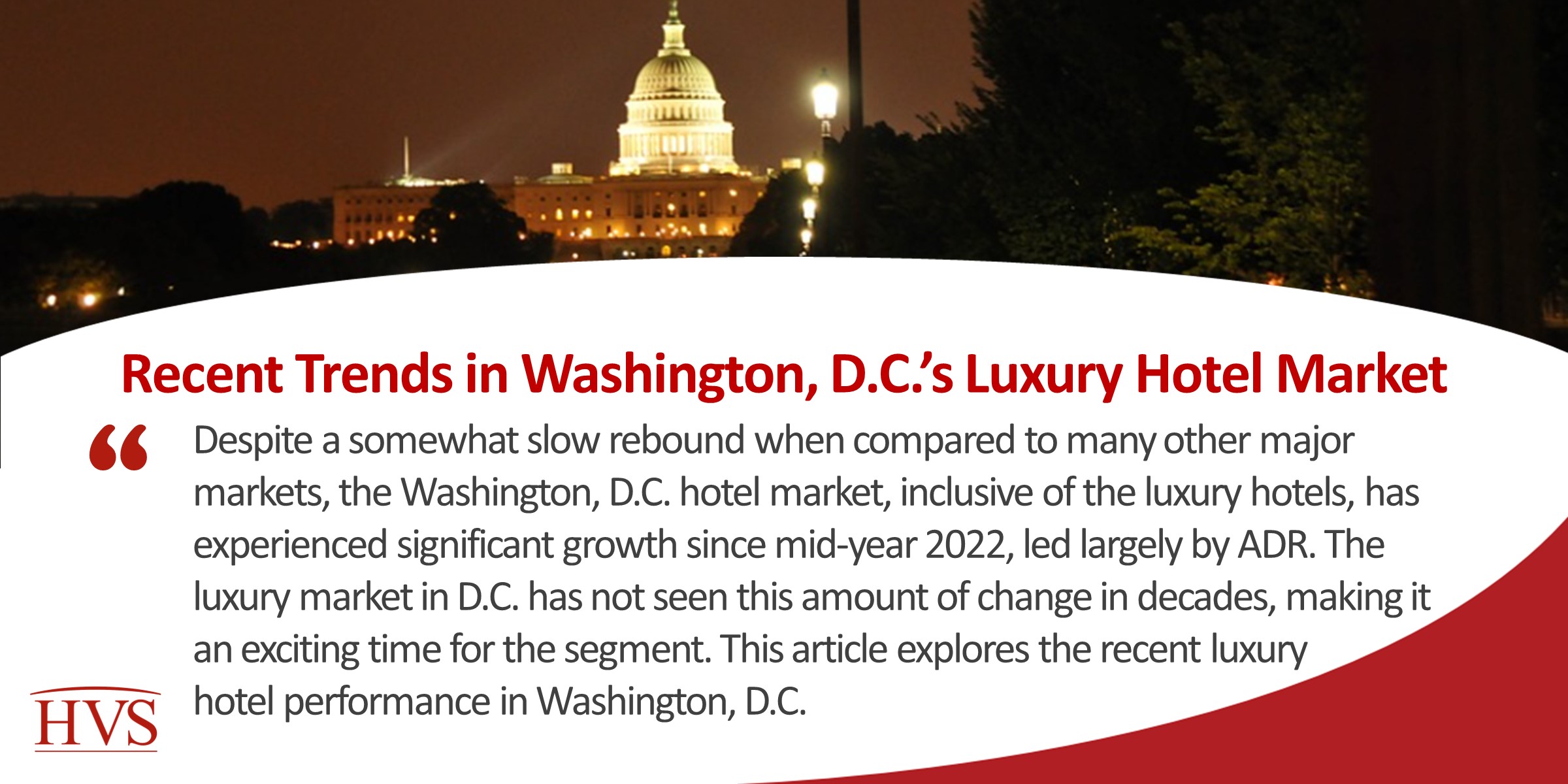
Despite a somewhat slow rebound when compared to many other major markets, the Washington, D.C. hotel market, inclusive of the luxury hotels, has experienced significant growth since mid-year 2022, led largely by ADR. The luxury market in D.C. has not seen this amount of change in decades, making it an exciting time for the segment. This article explores the recent luxury hotel performance in Washington, D.C.
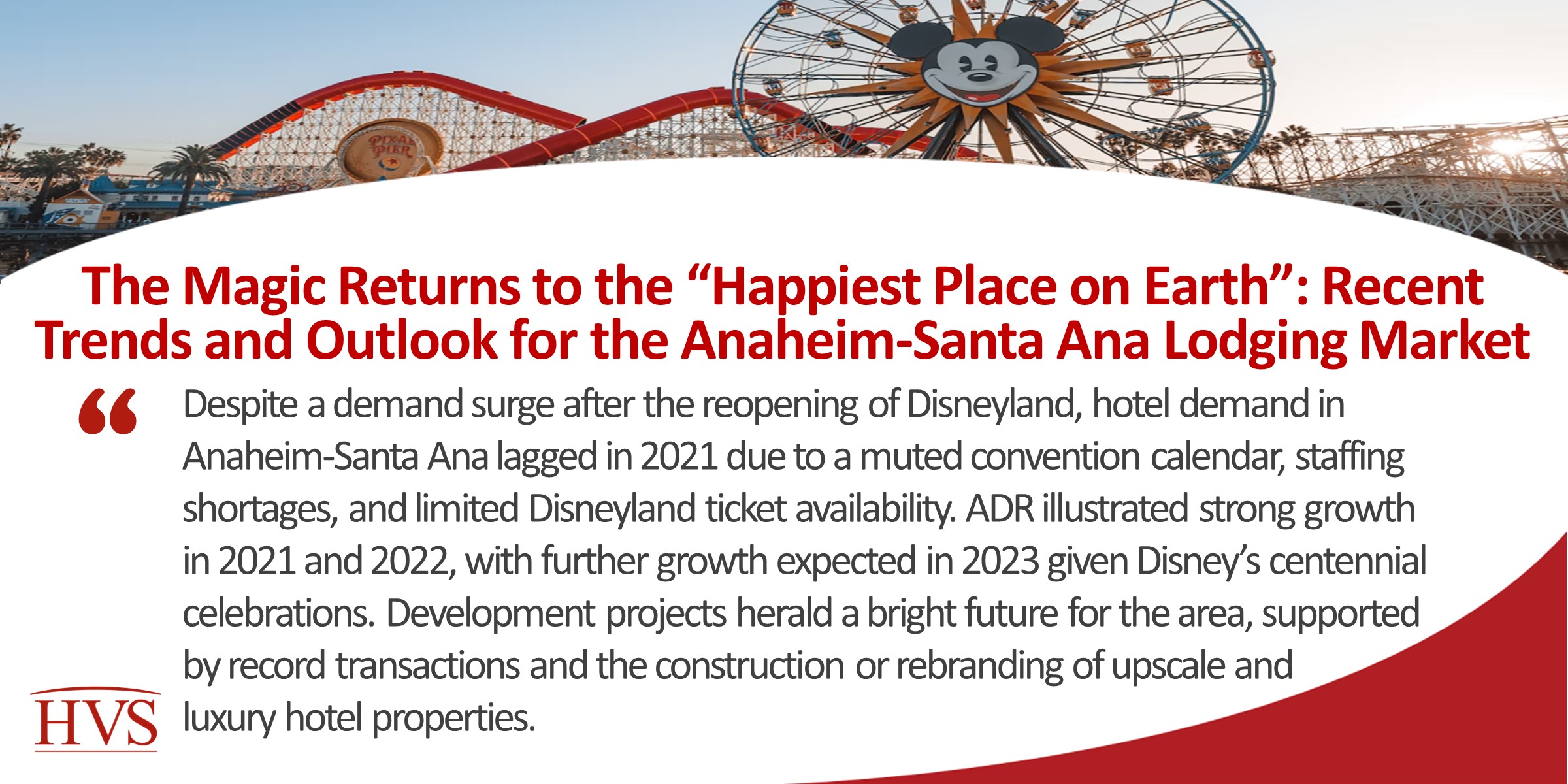
Despite a demand surge after the reopening of Disneyland, hotel demand in Anaheim-Santa Ana lagged in 2021 due to a muted convention calendar, staffing shortages, and limited Disneyland ticket availability. ADR illustrated strong growth in 2021 and 2022, with further growth expected in 2023 given Disney’s centennial celebrations. Development projects herald a bright future for the area, supported by record transactions and the construction or rebranding of upscale and luxury hotel properties.
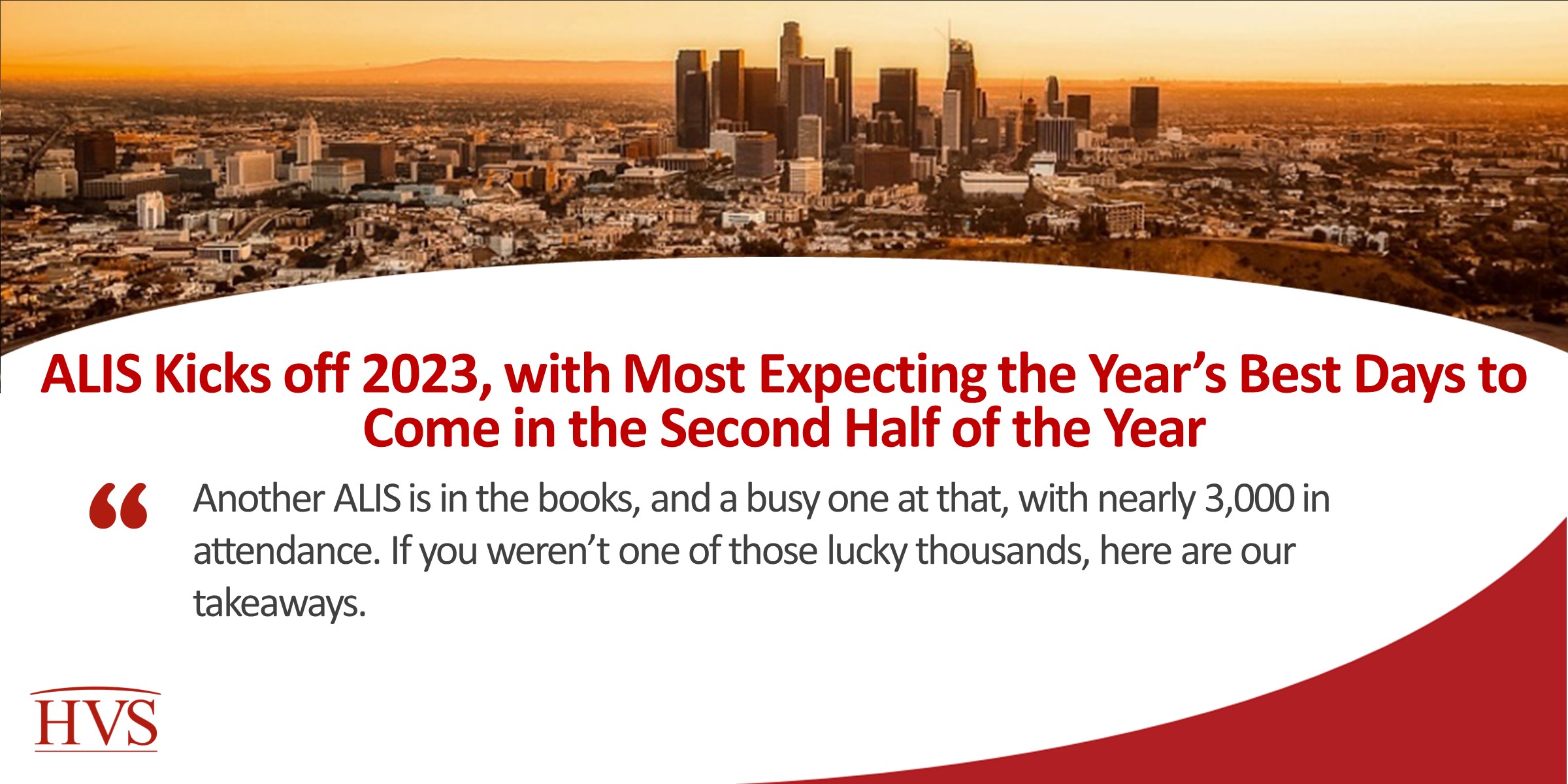
Another ALIS is in the books, and a busy one at that, with nearly 3,000 in attendance. If you weren’t one of those lucky thousands, here are our takeaways.
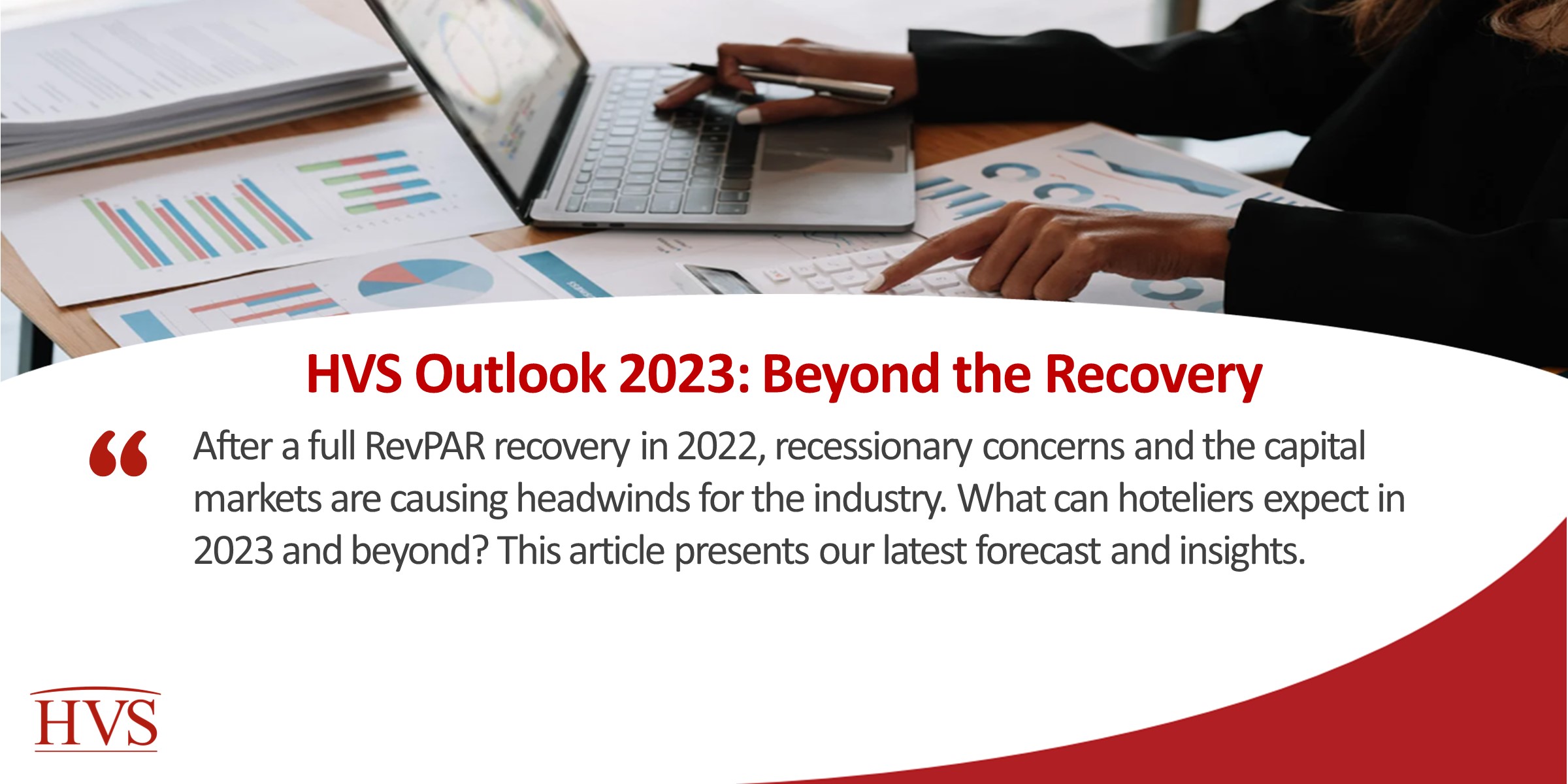
After a full RevPAR recovery in 2022, recessionary concerns and the capital markets are causing headwinds for the industry. What can hoteliers expect in 2023 and beyond? This article presents our latest forecast and insights.
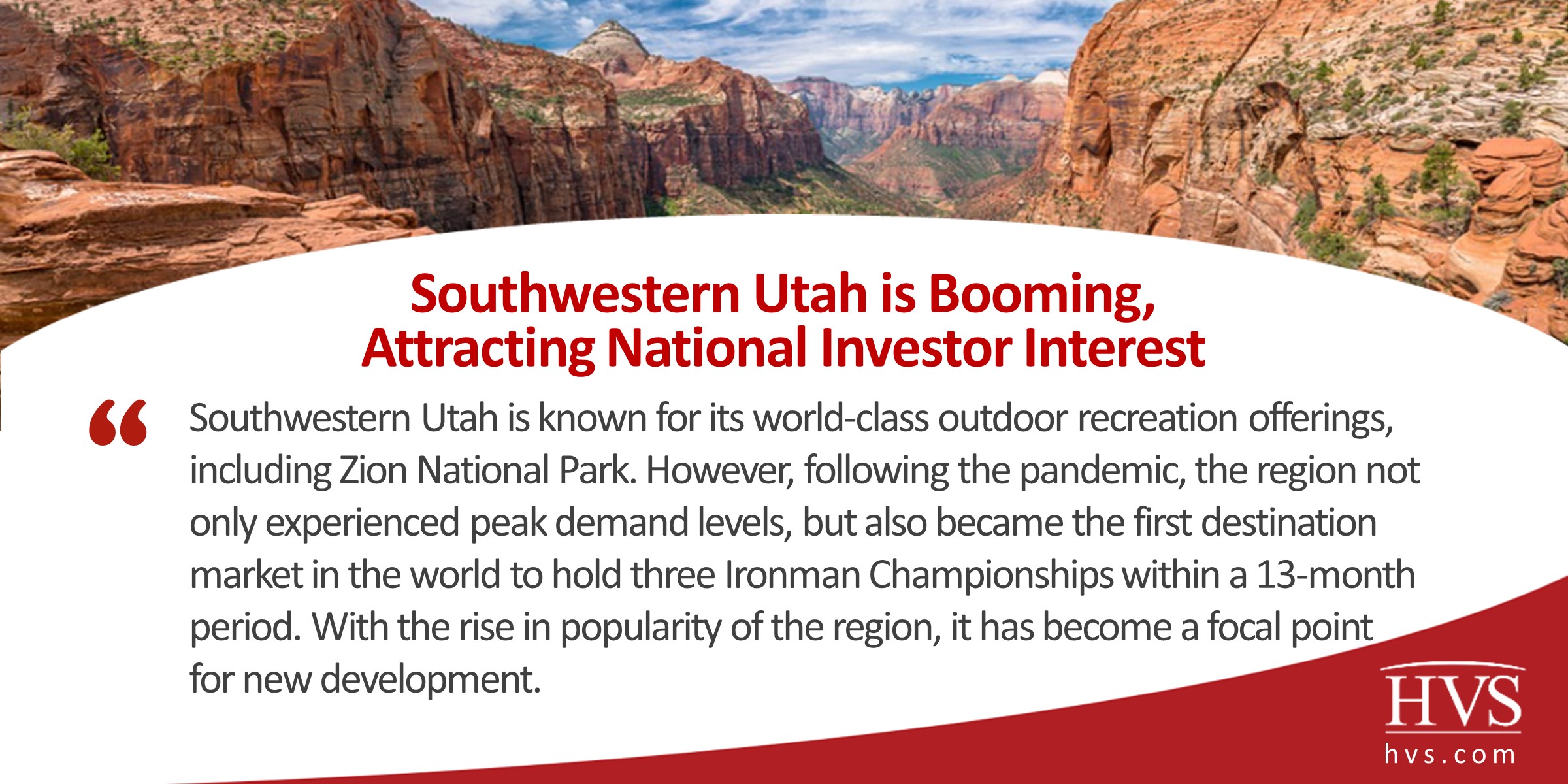
Southwestern Utah is known for its world-class outdoor recreation offerings, including Zion National Park. However, following the pandemic, the region not only experienced peak demand levels, but also became the first destination market in the world to hold three Ironman Championships within a 13-month period. With the rise in popularity of the region, it has become a focal point for new development.
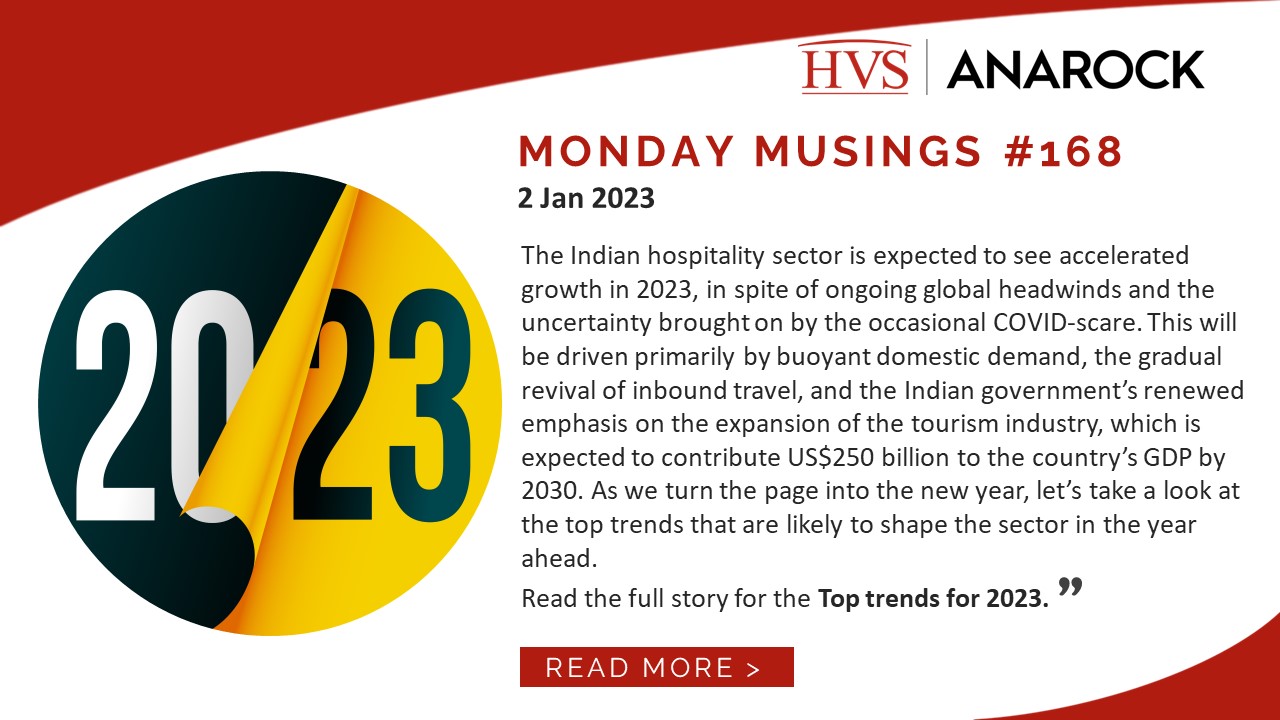
As we turn the page into the new year, let’s take a look at the top trends that are likely to shape the Indian hospitality sector in 2023. Read on to know more.
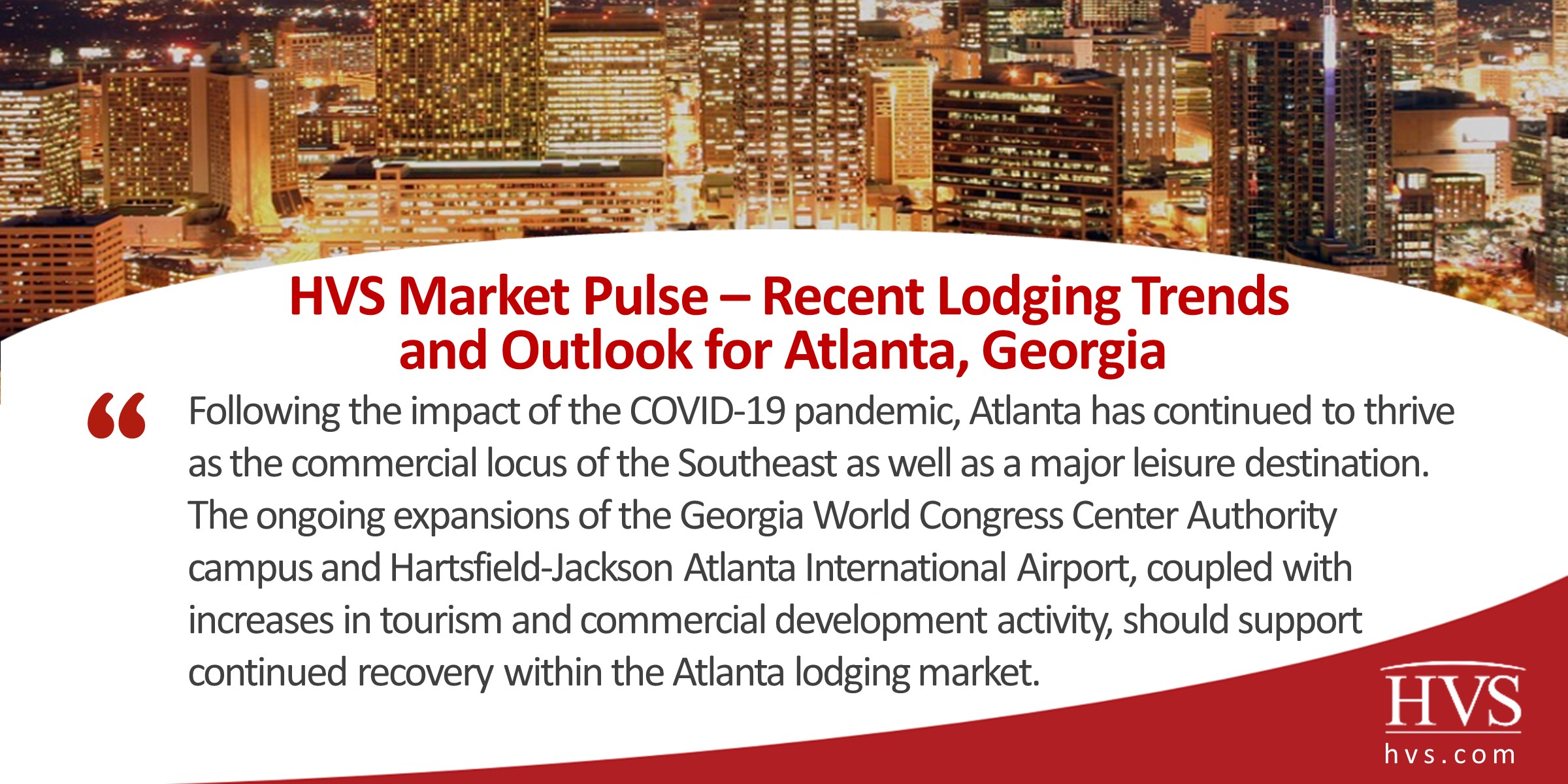
Following the impact of the COVID-19 pandemic, Atlanta has continued to thrive as the commercial locus of the Southeast as well as a major leisure destination. The ongoing expansions of the Georgia World Congress Center Authority campus and Hartsfield-Jackson Atlanta International Airport, coupled with increases in tourism and commercial development activity, should support continued recovery within the Atlanta lodging market.
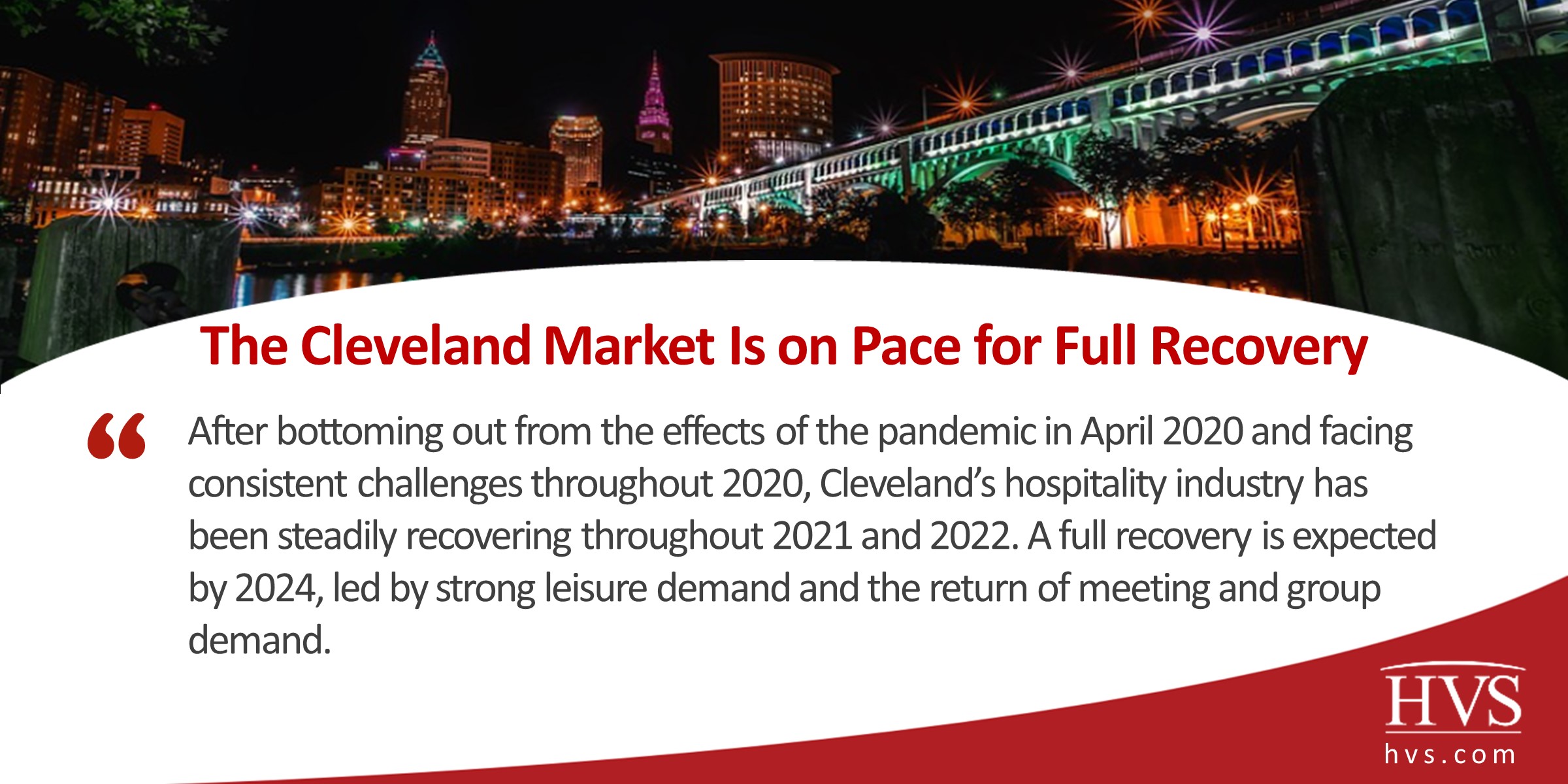
After bottoming out from the effects of the pandemic in April 2020 and facing consistent challenges throughout 2020, Cleveland’s hospitality industry has been steadily recovering throughout 2021 and 2022. A full recovery is expected by 2024, led by strong leisure demand and the return of meeting and group demand.
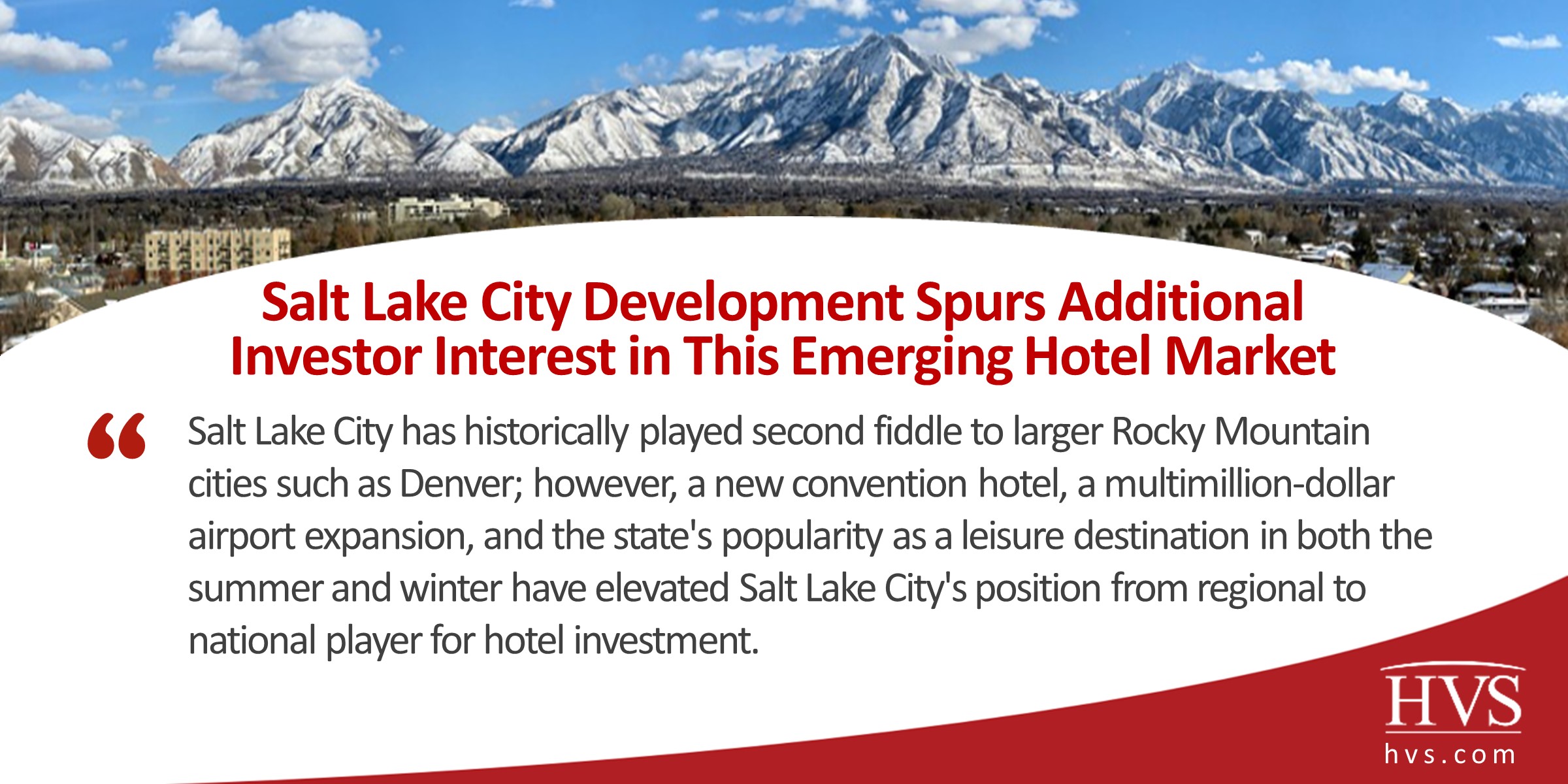
Salt Lake City has historically played second fiddle to larger Rocky Mountain cities such as Denver; however, a new convention hotel, a multimillion-dollar airport expansion, and the state's popularity as a leisure destination in both the summer and winter have elevated Salt Lake City's position from a regional to a national player for hotel investment.

Robust demand in urban centers continues to drive Canadian hotel values despite high interest rate environment.